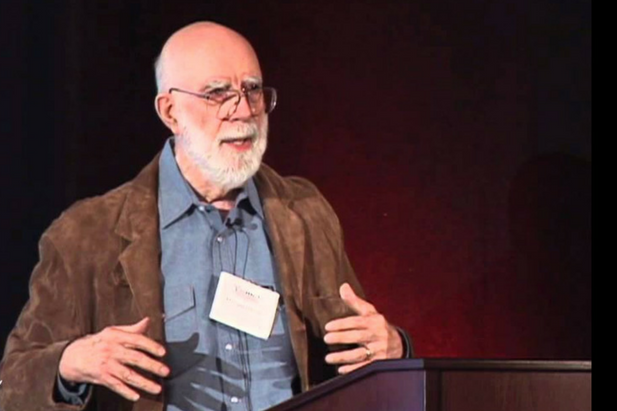
Anthropologist, Archeologist, and Shamanic Teacher
Michael Harner did his anthropological doctoral research with the indigenous people of the Amazon in the 1960’s. From that experience, he developed a practice of “core shamanism” that makes what he calls “cross-cultural shamanic healing practices” available to Western people.
The most well-known of these practices is the shamanic journey, which uses rhythmic drumming help the practitioner enter a trance and converse and collaborate with helping Spirits for teaching and healing. In 2004, I was fortunate to participate in a two-week intensive shamanic training with Michael in California, one of the last taught completely by him.
Michael says, “Shamanism is being reinvented in the West precisely because it is needed. Shamanism is a path of knowledge, not of faith, and that knowledge cannot come from me or anyone else in this reality. To acquire that knowledge, including the knowledge of the reality of the spirits, it is necessary to step through the shaman’s doorway and acquire empirical evidence.
What’s really important about shamanism is that there is another reality that you can personally discover…we are not alone.”
I honour Michael as one of the pioneers of the consciousness studies movement. He brought these teachings when they were still very new and unfamiliar to most modern people. He is a gifted translator of indigenous wisdom for Western people and, by reaching beyond culturally specific practices to identify the common energy technology at work, he helped me believe that I, as a white woman, could do this work with integrity and authenticity.
Michael’s understanding of the role of sound and ritual to shift consciousness and connect with the healing powers of the cosmos shapes most of the work I do. For that, and for his commitment to carving out a space in modern culture for Western shamanic healing practices, I am deeply grateful.
To learn more about Michael and his work, visit his organization, the Foundation for Shamanic Studies, or watch this documentary, on his work with his wife, Sandra Harner.
